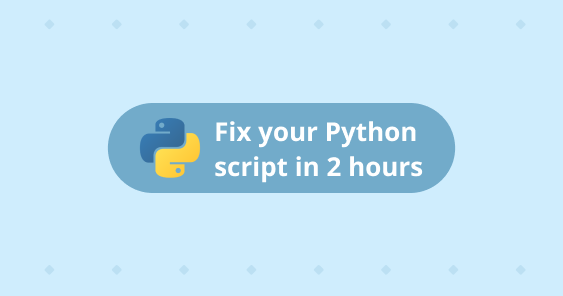Here’s a collection of coding problems suited for Python beginners, each with an example and explanation.
-
Sum of Digits
Problem:
Write a program that calculates the sum of the digits of a given number.
Example:
# Take input from the user
number = input("Enter a number: ")
# Calculate the sum of digits
digit_sum = sum(int(digit) for digit in number)
# Print the result
print(f"The sum of the digits is: {digit_sum}")The program uses a generator expression inside the `sum()` function to iterate over each digit in the input string, convert it to an integer, and sum them up.
-
Factorial Calculation
Problem:
Write a program to calculate the factorial of a given number.
Example:
# Take input from the user
n = int(input("Enter a number: "))
# Initialize factorial
factorial = 1
# Calculate factorial
for i in range(1, n + 1):
factorial *= i
# Print the result
print(f"The factorial of {n} is {factorial}")This program uses a loop to multiply numbers from 1 to `n` to compute the factorial.
-
Count Vowels in a String
Problem:
Write a program that counts the number of vowels in a given string.
Example:
# Take input from the user
text = input("Enter a string: ")
# Define vowels
vowels = "aeiou"
# Count vowels
vowel_count = sum(1 for char in text.lower() if char in vowels)
# Print the result
print(f"Number of vowels in the string: {vowel_count}")The program converts the string to lowercase and uses a generator expression to count characters that are vowels.
-
Reverse a String
Problem:
Write a program to reverse a given string.
Example:
# Take input from the user
text = input("Enter a string: ")
# Reverse the string
reversed_text = text[::-1]
# Print the result
print(f"Reversed string: {reversed_text}")String slicing `[::-1]` is used to reverse the string by stepping backwards through the entire string.
-
Find the Largest Number in a List
Problem:
Write a program that finds the largest number in a list of integers.
Example:
# Define a list of integers
numbers = [int(x) for x in input("Enter numbers separated by spaces: ").split()]
# Find the largest number
largest_number = max(numbers)
# Print the result
print(f"The largest number is {largest_number}")The program uses the `max()` function to find the largest number in the list created from user input.
-
Generate Multiplication Table
Problem:
Write a program to generate a multiplication table for a given number.
Example:
# Take input from the user
number = int(input("Enter a number: "))
# Generate and print the multiplication table
print(f"Multiplication table for {number}:")
for i in range(1, 11):
print(f"{number} x {i} = {number * i}")The program uses a loop to generate and print the multiplication table for the given number.
-
Remove Duplicates from a List
Problem:
Write a program to remove duplicate values from a list.
Example:
# Define a list with duplicate values
original_list = [int(x) for x in input("Enter numbers separated by spaces: ").split()]
# Remove duplicates by converting to a set
unique_list = list(set(original_list))
# Print the result
print(f"List without duplicates: {unique_list}")Converting the list to a `set` removes duplicates, and then converting it back to a `list` provides the unique values.
-
Check for Prime Number
Problem:
Write a program that checks if a given number is a prime number.
Example:
# Take input from the user
number = int(input("Enter a number: "))
# Check if the number is prime
if number > 1:
for i in range(2, int(number0.5) + 1):
if number % i == 0:
print(f"{number} is not a prime number.")
break
else:
print(f"{number} is a prime number.")
else:
print(f"{number} is not a prime number.")The program checks for factors up to the square root of the number to determine if it is prime. If any factors are found, the number is not prime.
-
Sum of Even Numbers in a List
Problem:
Write a program to find the sum of all even numbers in a list.
Example:
# Define a list of integers
numbers = [int(x) for x in input("Enter numbers separated by spaces: ").split()]
# Calculate the sum of even numbers
even_sum = sum(num for num in numbers if num % 2 == 0)
# Print the result
print(f"Sum of even numbers: {even_sum}")The program uses a generator expression inside the `sum()` function to filter and sum only the even numbers.
-
Convert Temperature
Problem:
Write a program to convert a temperature from Celsius to Fahrenheit and vice versa.
Example:
# Take input from the user
temp = float(input("Enter temperature: "))
unit = input("Enter 'C' for Celsius to Fahrenheit or 'F' for Fahrenheit to Celsius: ").upper()
# Perform the conversion
if unit == 'C':
converted_temp = (temp * 9/5) + 32
print(f"{temp} Celsius is {converted_temp} Fahrenheit")
elif unit == 'F':
converted_temp = (temp - 32) * 5/9
print(f"{temp} Fahrenheit is {converted_temp} Celsius")
else:
print("Invalid input")The program uses conditional statements to determine the conversion type based on user input and applies the respective formula.
These problems cover a range of fundamental Python concepts including loops, conditionals, list operations, and user input. Working through them can help build a solid foundation in programming with Python.
Could not find the solution ?






